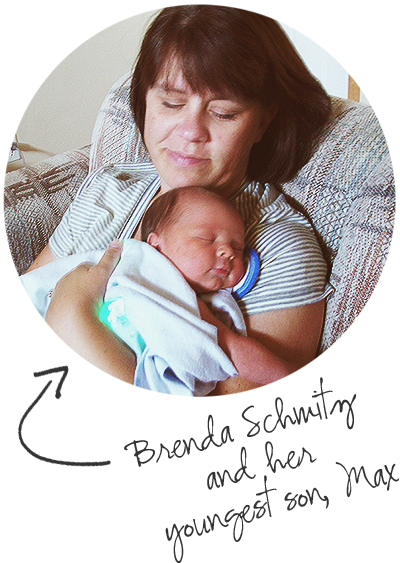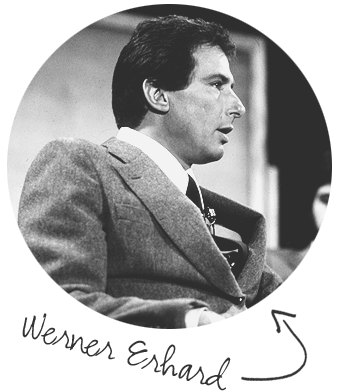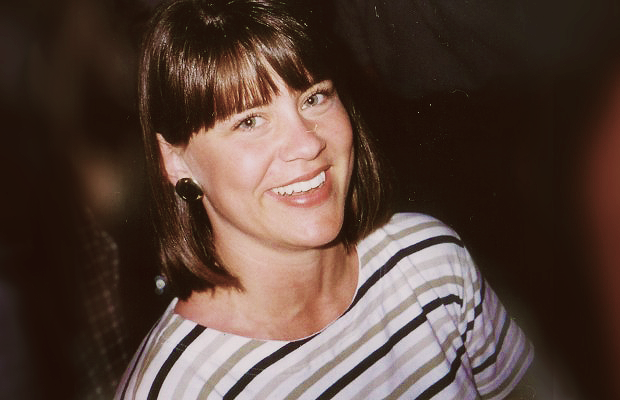OK, Time To Stop Playing The Victim

By now, you might have heard the inspirational story of Des Moines woman, Brenda Schmitz, who died two years ago of ovarian cancer, at age 46. Before she died, Brenda gave a good friend a letter she wrote that she wanted read on her favorite Des Moines radio station “when the time was right,” which meant when her husband was about to remarry. Brenda and husband David had four sons together; the youngest was two years old when she died.
The time was right. David is engaged. After receiving the letter, Des Moines radio station, Star 102.5, called him to come and hear it read.
If you haven’t heard the story, I don’t want to tell you what the letter said, so please watch this video. Once you’ve watched it, think about your answer to this question:
Have you ever considered yourself a victim?
Of course you have. Haven’t we all, at one time or another, thought a boss was treating us unfairly, a boyfriend had deceived us, a competitor was “out to get us” or an illness was preventing us from doing something we desperately wanted to do, and was therefore something we “didn’t deserve?”
Brenda wasn’t going to see her sons grow up. She wasn’t going to enjoy growing older with David. She was losing her young life to a horrendous disease. But Brenda didn’t, for one minute, think anyone or anything was victimizing her. Not only did she accept her situation; she embraced it, determined to share her warmth, love and kindness, even when she no longer could physically do it.
I don’t really believe we’re “victims” of circumstances or others. Most of the time, I am the only one with the power to turn myself into a “victim.” If my house is robbed, I can call myself a victim and spend months bemoaning my losses and wishing that harm befalls the robbers, or I can accept what is. If I get an incurable cancer, I can spend the time I have left crying and pitying myself, or I can strive to be like Brenda and make something positive of the situation. Granted, it’s easier said than done, but the former option is pretty depressing.

“At all times and under all circumstances, we have the power to transform the quality of our lives,” said Werner Erhard, one of the leaders of the emerging self-empowerment movement in the seventies. Erhard’s “est” (short for Erhard Seminars Training, as well as Latin for “it is,”) offered intensive communications and self-empowering workshops “to transform one’s ability to experience living so that the situations one had been trying to change or had been putting up with, [will] clear up just in the process of life itself.” I can constantly bellyache that my mother is self-centered, nagging, doesn’t listen to me and ruined my childhood, or I can accept who she is and choose to see how much she loves me in her way. “Create your future from your future, not your past,” Erhard said.
“Responsibility begins with the willingness to be cause in the matter of one’s life. Responsibility is not burden, fault, praise, blame, credit, shame or guilt.
“In responsibility, there is no evaluation of good or bad, right or wrong. There is simply what’s so, and your stand,” Erhard also said.
“Being responsible starts with the willingness to deal with a situation from the view of life that you are the generator of what you do, what you have and what you are. That is not the truth. It is a place to stand. No one can make you responsible, nor can you impose responsibility on another. It is a grace you give yourself—an empowering context that leaves you with a say in the matter of life.”
Think about the difference between those who are able to survive—and thrive—despite horrific circumstances and people (e.g. living in a concentration camp during The Holocaust, being imprisoned when you’re innocent, getting a crippling disease) and those who cry victim over everything. Think about the difference between those who scream “why me?” when they learn they’re going to die and those who move through their dying process with clarity, grace, even growth.
That’s you, Brenda. You are my inspiration in 2014.


